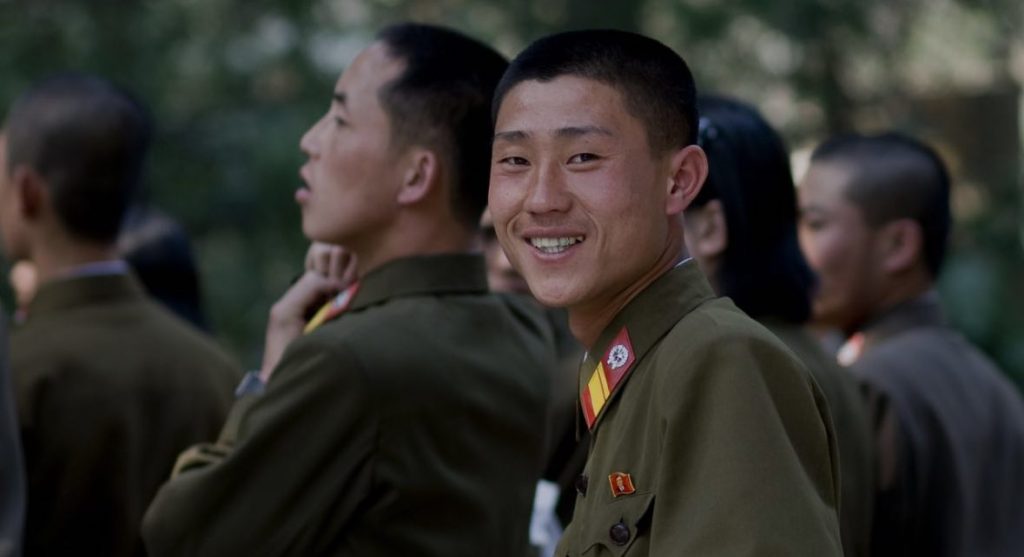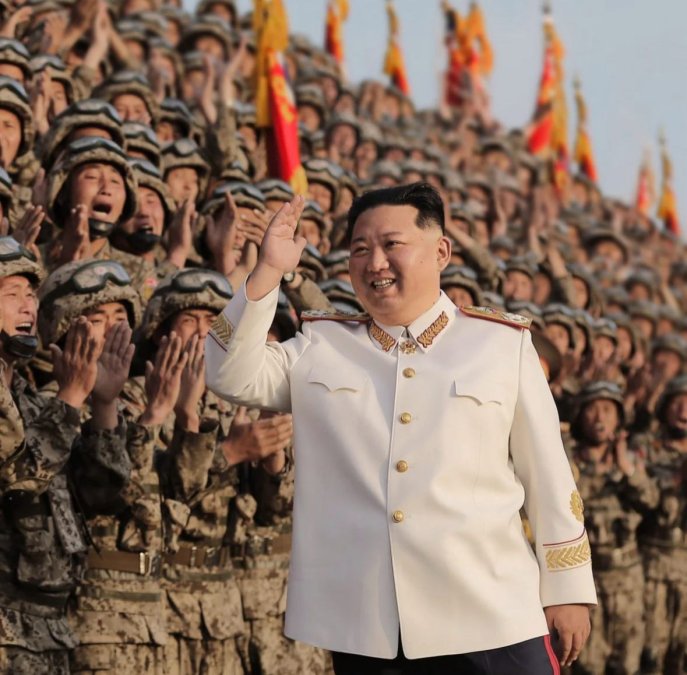The Silent Slaves of War: North Korean Workers in the Heart of Russia
The Silent Slaves of War: North Korean Workers in the Heart of Russia
This report, prepared and published by the Irangate News Agency, provides a documentary and comprehensive look at a concerning trend that has emerged in recent months at the hidden borders of cooperation between North Korea and Russia.
In the shadow of the Ukraine war and a severe shortage of manpower in Russia, hundreds and even thousands of North Korean citizens have been dispatched to massive construction and industrial projects in Russia, often under conditions similar to modern slavery.
What you read in this report is the result of direct conversations with escaped workers, independent analysts, researchers, and activists who have played a role in trying to rescue these individuals.
The present report, utilizing field sources and unpublished security data, provides a clear and alarming picture of the human and legal situation of this vulnerable workforce.
Recent reports reveal a bitter reality: thousands of North Korean citizens have been sent to Russia to work under conditions similar to a slavery system.
The purpose of this action is to help fill the severe labor shortage in Russia, a crisis that has intensified following the invasion of Ukraine.
Military relations between Moscow and Pyongyang have been strengthened multiple times during the Ukraine war, with Russia utilizing North Korean weapons, missiles, and even manpower to continue the war.
Now, with many Russian men either killed on battlefronts, engaged in war, or having fled the country, Russia’s reliance on foreign labor, especially North Korean workers, has increased day by day. South Korean intelligence sources have emphasized to the BBC that this dependency has reached a concerning level.
In the meantime, a journalist has spoken with six North Korean escapees who fled Russia after the war began, as well as with researchers, officials, and activists who have worked to rescue these workers.
These witnesses have described in painful detail the unbearable conditions of the workers and the heavy and constant monitoring by North Korean authorities over their lives.
Jin, one of these workers, recalls how he was immediately accompanied by a North Korean security officer to his workplace upon arriving in Russia’s Far East.
He was not allowed to speak to anyone or even look around. The same officer had warned him that the outside world is our enemy. Upon arrival, Jin was directly transferred to a construction site where he was forced to work 18 hours a day building tall residential towers.
All six workers interviewed described their working conditions as exhausting and inhumane. They would wake up every day at six in the morning and work non-stop until two in the morning.
Throughout the year, they only had two days of rest. To ensure their safety, names in this report have been changed.
Tae, a worker who managed to escape from Russia last year, says, ‘Every morning, I woke up in terror at the thought of another day. My hands were paralyzed with pain at the start of the day, my fingers wouldn’t even open.’ He recounts how his body would give out from the intense work pressure.
Chan, another worker, spoke of an alarming situation where some workers would fall asleep from exhaustion while working. Supervisors would notice, wake them up, and punish them violently. We truly felt like we were dying.
Professor Kang Dong-wan from Dong-A University in South Korea, who has traveled to Russia multiple times for research, finds the conditions completely unbearable. He adds that workers even work at night without any safety equipment in complete darkness.
The escapees say they spend almost the entire day and night at the construction site, constantly monitored by North Korean security officers. Many of them live in filthy, insect-infested containers or sleep on cold floors in unfinished apartments, covering doors and windows with tarps to keep warm.
Nam, another worker, remembers a dangerous fall from a four-meter height that resulted in severe facial injuries.
However, employers did not even allow him to go to the hospital.
For decades, tens of thousands of North Korean workers have been employed in Russia, generating millions of dollars in revenue for the Kim Jong-un regime.
In 2019, the United Nations, aiming to limit financial resources for Pyongyang’s nuclear program, prohibited countries from hiring North Korean workers, leading to the repatriation of many of them.
Nevertheless, South Korean security sources have reported that over 10,000 North Korean workers secretly entered Russia last year, with plans to send an additional 50,000 in the works.

According to this source, the sudden increase in the number of these workers indicates that the presence of North Korean labor has spread across Russia.
Although most of them are engaged in construction projects, some work in garment factories or IT centers, which is a clear violation of UN sanctions.
Official Russian government statistics also confirm this issue: in 2024, over 13,000 people from North Korea entered Russia, a number that has increased twelvefold compared to the previous year.
Interestingly, about 8,000 of these individuals entered with student visas, a workaround Russia uses to circumvent sanctions.
Sergei Shoigu, a senior Russian national security official, announced in June that 5,000 North Korean workers had come to Russia to rebuild the city of Kursk, a city previously captured by Ukrainian forces but later returned to Russian control.
A South Korean security source emphasizes that North Korean workers might soon be employed in reconstruction projects in occupied areas of Ukraine.
Andrei Lankov, a professor at Kookmin University and an expert on Russia and North Korea, believes that in the face of a severe labor shortage in Russia, North Korea has offered Moscow a low-cost, hassle-free solution: cheap, loyal, and uncomplaining labor.
Meanwhile, many North Korean citizens dream of working abroad because they are promised higher wages.
Many of these workers embark on this journey to escape poverty or in the hope of buying a house and starting a business upon their return.
However, a large portion of their wages is paid to the North Korean government, and only a small part, about $100 to $200 a month, is recorded in a booklet for them.
This amount is only given to them upon their return to the country.
Experts believe this method is designed to prevent their escape.
Many of these workers break down psychologically when they discover the truth behind the scenes.
Tae, one of these workers, said he felt humiliated and ashamed when he realized Central Asian workers earn five times more for less work, thinking, ‘This is a forced labor camp, a prison without bars.’
Jin, another worker, still recalls with anger how workers from other countries called them slaves, saying, ‘You are not human, you are machines that talk.’ He also recounts how his boss told him the government needs the money and he shouldn’t expect to receive a salary.
At that moment, he decided to escape, even if it cost him his life.
Tae decided to save himself at all costs after watching YouTube videos showing how much South Korean workers earn.
One night, he packed all his belongings in a garbage bag, arranged a blanket under the sheets as if he was sleeping in bed, and quietly left the camp. He took a taxi and, after a long and dangerous journey spanning thousands of kilometers, managed to find a lawyer who could arrange for him to reach Seoul.
In recent years, only a handful of workers have successfully escaped.
They have managed to communicate and plan their escape using second-hand smartphones, which are prohibited.
They funded the purchase of these phones with the small daily savings given to them for buying cigarettes or drinks.
However, according to reports from multiple sources, North Korean authorities, aware of this, have severely restricted the personal freedoms of these workers. Professor Kang from Dong-A University says that last year, ideological monitoring and so-called self-criticism sessions for these workers intensified. In these sessions, workers are required to declare loyalty to Kim Jong-un and confess their mistakes.
He explains that even rare instances of group outings from their living quarters have been restricted. Previously, they were allowed to go out in groups once a month, but now even these programs have been completely canceled.
Kim Seong-chul, a civic activist based in Seoul who helps rescue these workers, adds that previously they were allowed to go out in pairs, but from 2023, they must go out in groups of five under strict supervision.
As a result of these restrictions, the number of escapes has significantly decreased.
South Korean officials say the number of North Korean workers who manage to escape and reach Seoul annually has dropped from about 20 in 2022 to less than 10.
Andrei Lankov, a prominent expert on Russia-North Korea relations, sees this trend as a prelude to expanding labor dispatch programs.
He believes that even after the end of the Ukraine war and the cessation of arms shipments, the dispatch of these workers will continue.
He concludes that these workers will become part of the enduring legacy of the Kim Jong-un and Vladimir Putin alliance—a legacy that will remain in various corners of Russia even years after the war ends.

